![Radigue, Eliane: Songs of Milarepa [2 CDs] (Lovely Music) Radigue, Eliane: Songs of Milarepa [2 CDs] (Lovely Music)](https://www.teuthida.com/productImages/misc4/31675.jpg)
Eliane Radigue received a grant from the French Government to compose these works, realized between 1981 and 1983 in her Paris analog studio on Arp synthesizer, with vocal submission from Robert Ashley and Tibetan teacher Lama Kunga Rinpoche, composing five songs in tribute to the Tibetan saint and poet from the eleventh century, Jetsun Milarepa.
Out of Stock
Quantity in Basket: None
Log In to use our Wish List
Shipping Weight: 5.00 units
Sample The Album:
Eliane Radigue-synthesizer, composer
Shabdrung Lama Kunga Thartse Rinpoche-vocals
Robert Ashley-voice
Click an artist name above to see in-stock items for that artist.
UPC: B00000IOAM
Label: Lovely Music
Catalog ID: LCD 2001CD
Squidco Product Code: 31675
Format: 2 CDs
Condition: New
Released: 2022
Country: USA
Packaging: Jewel Case
Recorded in Paris, France ,between 1981 and 1983, by the artist. 2022 repress of the 1998 Double CD of all 5 of Radigue's songs in tribute to the Tibetan saint and poet from the eleventh century. Two of the tracks date from an 1983 LP (Radigue's first release), two are previously unreleased and the final 62-minute track was previously issued as a sole CD in 1987.
"2022 repress. Originally released on Lovely Music in 1998. Double CD of all five of Elaine Radigue's songs in tribute to the Tibetan saint and poet from the 11th century. Two of the tracks dates from Radigue's first release in 1983, two are previously unreleased and the final 62-minute track was previously issued as a sole CD in 1987. The material is performed by Radigue (synthesizer and recording), Robert Ashley (English voice), and Lama Kunga Rinpoche (Tibetan voice). Radigue was born in a
"Eliane Radigue's music has been familiar to me, and to other New Yorkers, since the early 70s. She worked for a year at the electronic music center at NYU, where she came to know Morton Subotnick, Rhys Chatham, Laurie Spiegel, and others, and she has returned to the States periodically to present programs of her own electronic works at the Kitchen and other places. In 1975, however, she became a Tibetan Buddhist, went into retreat, and dropped her composing career completely. Curiously, when she returned to music four years later, her work went on very much as before. The aesthetic was still minimalist, one might even say ascetic. The sounds were still long and sustained. The source was still her 1970 Arp synthesizer. The medium was still recording tape. The result was still a technically impeccable sequence of carefully tuned tones, which emerge from unexpected places, coalesce into unique modes, and change very slowly. The music still challenged the listener to slow down, be patient, and observe subtle changes. Listening in this way can be considered a form of meditation, and I would say that Radigue's music is clearly religious in nature, though perhaps no more religious now than before her own conversion.
Recently Radigue embarked on a long-term project based on the 100,000 songs of the Tibetan master Milarepa. Privileged one night in early March to hear a private playing of the first segment of the new work which lasts about 75 minutes, I was particularly impressed by the distinct personality of every tone in the new piece. This one has a breathy quality. This one has an odd oboe-like edge. Another vibrates in a quirky way. Another is somehow very distant and rather loud at the same time. Another is so soft that you sometimes can't be sure whether it is there or not. There is a rhythmic motif in the second of the four sections of the piece, and for a while Radigue's music seems to be moving, dancing, making gestures in a way that it normally never does. Her style develops over the years with the same kind of subtle progress that can be heard in one of her individual pieces. Only the time scale is different."-Tom Johnson, "On the Fringe of Paris," The Village Voice (May, 1982)
"Eliane Radigue was born in Paris. She studied electroacoustic music techniques at RTF under Pierre Shaeffer and Pierre Henry, later becoming Henry's assistant at the Studio Apsome. She has had residencies at the New York University School of the Arts, at Iowa University, the California Institute of the Arts, and at Mills College. In 1975, Radigue became a disciple of Tibetan Buddhism. After four years of study, she began a large-scale cycle of works based on the life of the 11th century Tibetan master Milarepa. Radigue's music has been performed throughout Europe and the United States. She lives in France, where she continues to compose electronic music and to study the teachings of the Tibetan lamas. She returns to the United States periodically to present programs of her electronic works.
Lama Kunga Rinpoche was born in Lhasa, Tibet, in the wood-pig year, 1935. At the age of seven Rinpoche was recognized as a tulku - a reincarnation of Sevan Repa, heart disciple of the great sage Milarepa. Rinpoche entered the monastery and by age sixteen was ordained a monk. At the time of his escape from Tibet in 1959, he was vice-abbot (Thartse Sbabtrung) of Ngor Monastery, Sakya tradition. Geshe Wangyal, under the auspices of the Fourteenth Dalai Lama in Dharamsala, brought Rinpoche and three other young lamas to the United States in 1962. Founder and resident lama at Ewam Choden Tibetan Buddhist Meditation Center, Rinpoche has authored, with Brian Cutillo, two translations of Milarepa's stories and songs: Drinking the Mountain Stream (1978) and Miraculous Journey (1986), published by Lotsawa. He collaborated with Melody Sumner Carnahan on his father's autobiography, In the presence of my enemies: memoirs of Tibetan nobleman Tsipon Shuguba (1995), published by Clear Light, Santa Fe.
Robert Ashley is known for his work in new forms of opera and multi-disciplinary projects. He was born in Ann Arbor, Michigan in 1930 and was educated at the University of Michigan and the Manhattan School of Music. In the 1960s, Ashley organized Ann Arbor's legendary ONCE Festival and directed the ONCE Group. During the 1970s, he directed the Center for Contemporary Music at Mills College, toured with the Sonic Arts Union, and produced and directed Music with Roots in the Aether, a 14-hour television opera/documentary about the work and ideas of seven American composers. Ashley wrote and produced Perfect Lives, an opera for television widely considered to be the pre-cursor of "music-television." Staged versions of Perfect Lives and Atalanta (Acts of God) and the monumental opera tetralogy, Now Eleanor's Idea, have toured throughout Europe, Asia and the United States. More recently, he wrote Balseros for Florida Grand Opera and When Famous Last Words Fail You, for the American Composers Orchestra. He is writing Your Money My Life Good-bye for Bayerischer Rundfunk, and Dust for the The Kanagawa Prefectural Concert Hall in Yokohama.
Eliane Radigue received a "bourse à la creation" from the French Government to compose Songs of Milarepa, and a "Commande de l'état" for Jetsun Mila. Radigue realized the five Songs of Milarepa between 1981 and 1983 in her Paris analog studio. They were transfered to digital format in October 1991 at C.I.R.M. in Nice, with the assistance of Michel Redolfi, Michel Pascal, and Luc Martinez."
-Lovely Music
extremely organic and mystical electronics vibe, and has been previously documented on Phill Niblock's XI label, as well as Metamkine and Lovely. Milarepa is a great saint and poet of Tibet who lived in the 11th century. Through years dedicated to meditation and related practices in the solitude of the mountains, Milarepa achieved the highest attainable illumination and the mental power that enabled him to guideinnumerable disciples. His ability to present complex teachings in a simple, lucid style is astonishing. He had a fine voice and loved to sing. When his patrons and disciples made a request or asked him a question, he answered in spontaneously composed free-flowing poems or lyric songs. It is said that he composed 100,000 songs to communicate his ideas in his teachings and conversations."-Lovely Music"Artist Biographies
• Show Bio for Eliane Radigue "Eliane Radigue was born in Paris, France. She studied electroacoustic music techniques at the Studio d'essai at the RTF, under the direction of Pierre Schaeffer and Pierre Henry (1957-58). She was married to the artist, Arman, and devoted ten years to the education of three children, deepening classical music studies and instrumental practice on the harp and piano at the same time. In 1967-68 she worked again with Pierre Henry, as his assistant at the Studio Apsome. Radigue worked for a year at the New York University School of the Arts in 1970-71. Her music, its source an Arp synthesizer and medium recording tape, attracted considerable attention for its sensitive, dappled purity. She was in residence at the electronic music studios of the University of Iowa and California Institute of the Arts in 1973. Becoming a Tibetan Buddhist in 1975, Radigue went into retreat, and stopped composing for a time. When she took up her career again in 1979, she continued to work with the Arp synthesizer which has become her signature. She composed Triptych for the Ballet Théâtre de Nancy (choreography by Douglas Dunn), Adnos II & Adnos III, and began the large-scale cycle of works based on the life of the Tibetan master, Milarepa. In 1984 Radigue received a "bourse à la creation" from the French Government to compose Songs of Milarepa, and a "commande de l'état" in 1986 for the continuation of the Milarepa cycle with Jetsun Mila. Notoriously slow and painstaking in her work, Radigue has produced in the last decade or so on average one major work every three years. Very recently, in response to the demands of musicians worldwide, she has begun creating works for specific performers and instruments together with electronics. The first of these was for bass player Kaspar Toeplitz, and more recently the American cellist Charles Curtis. Performances of her music have taken place at galleries and museums such as the Salon des Artistes Decorateurs (Paris), Foundation Maeght (St. Paul de Vence), Albany Museum of the Arts (New York), Galerie Rive Droite (Paris), Gallery Sonnabend (New York), Galerie Yvon Lambert (Paris), and Galerie Shandar (Paris); at festivals including the Festival de Como (Italy), the Festival d'Automne a Paris, Festival Estival (Paris), International Festival of Music (Bourges, France); and at the New York Cultural Center, Experimental Intermedia Foundation (New York), The Kitchen (New York), Columbia University (New York), Vanguard Theatre (Los Angeles), LACE (Los Angeles), Mills College (Oakland), University of Iowa, Bennington School of Music, the San Francisco Art Institute, and the NEMO Festival (Chicago 1996). She has appeared on many broadcast programs including France Culture, France Musique, distribution via satellite covering over 50 stations in the U.S. including special programs on KPFK (Los Angeles) and KPFA (San Francisco). Radigue currently lives in France, where she continues to compose electronic music and study the teachings of the Tibetan lamas. She returns to the United States periodically to present programs of her electronic works." ^ Hide Bio for Eliane Radigue • Show Bio for Shabdrung Lama Kunga Thartse Rinpoche "Shabdrung Lama Kunga Thartse Rinpoche is a Tibetan teacher of the Sakya school of Vajrayana Tibetan Buddhism. Lama Kunga Rinpoche is licensed in California to perform marriages with a Tibetan Buddhist ceremony. Losang Kunga Gyurme was born into a noble family in Lhasa, Tibet in 1935, the son of Tsipon Shuguba, the last Finance Minister in the Dalai Lama's government in Lhasa. His mother Tsering Chonzom, was daughter of Trimon Norbu Wangyal, who became the chief cabinet minister in the Tibetan government of the 13th Dalai Lama. Trimon was the second son of Shakabpa Tenzin Norgye. Hence, Lama Kunga Rinpoche, is a close relative of the Tibetan historian Tsepon Shakabpa. Lama Kunga is also closely related to His Holiness Sakya Trinzin Dolma Phodrang, and the late King Jigme Dorje Palbar Bista, of Mustang, Nepal. At the age of 7, he was recognized as a reincarnation of Sevan Repa, a heart disciple of Milarepa, Tibet's 11th-century poet-saint. Rinpoche entered Ngor Monastery at eight, and was ordained as a monk at sixteen. In 1959, he was Vice-Abbot of Ngor Monastery, in the Sakya Tradition, but fled Western Tibet following the Dalai Lama's escape during the 1959 Tibetan uprising. His two brothers are Tsenshab Rinpoche Yeshi Thondup of Sera Mey, and Thartse Khen Rinpoche, who is also known as Hiroshi Sonami of Thartse Ngor Monastery. In 1962, Lama Kunga Rinpoche came to the United States, and in 1973 established Ewam Choden Tibetan Buddhist Center in Kensington, California. There he has sponsored visits from teachers of all four schools of Tibetan Buddhism diaspora, including the Dalai Lama, Sakya Trizin, Gyalwa Karmapa Rangjung Rigpe Dorje, Dudjom Rinpoche, Dilgo Khyentse Rinpoche, Kalu Rinpoche, Dezhung Rinpoche, Chögyam Trungpa, Ganden Trisur Rinpoche, Kyabje Zong Rinpoche and many other acclaimed masters. Lama Kunga has also taught in New Jersey, Washington D.C., Wisconsin, Oregon, Florida, Utah, San Diego, Minnesota, and Arkansas." ^ Hide Bio for Shabdrung Lama Kunga Thartse Rinpoche • Show Bio for Robert Ashley "Robert Ashley (1930-2014) Robert Ashley, a distinguished figure in American contemporary music, holds an international reputation for his work in new forms of opera and multi-disciplinary projects. His recorded works are acknowledged classics of language in a musical setting. He pioneered opera-for-television. The operatic works of Robert Ashley are distinctly original in style, and distinctly American in their subject matter and in their use of American language. Fanfare Magazine calls Ashley's Perfect Lives "nothing less than the first American opera...", and The Village Voice comments, "When the 21st Century glances back to see where the future of opera came from, Ashley, like Monteverdi before him, is going to look like a radical new beginning." A prolific composer and writer, Ashley's operas are "so vast in their vision that they are comparable only to Wagner's Ring cycle or Stockhausen's seven-evening Licht cycle. In form and content, in musical, vocal, literary and media technique, they are, however, comparable to nothing else." (The Los Angeles Times). Born in Ann Arbor, Michigan in 1930 Robert Ashley was educated at the University of Michigan and the Manhattan School of Music. At the University of Michigan, he worked at the Speech Research Laboratories (psycho-acoustics and cultural speech patterns), and was employed as a Research Assistant in Acoustics at the Architectural Research Laboratory. During the 1960s, Ashley organized the ONCE Festival, the annual festival of contemporary performing arts in Ann Arbor which, from 1961 to 1969, presented most of the decade's pioneers of the performing arts. He directed the highly influential ONCE Group, a music-theater ensemble that toured the United States from 1964 to 1969. During these years Ashley developed and produced the first of his mixed-media operas, notably That Morning Thing and In Memoriam...Kit Carson, and he composed the sound tracks for films by George Manupelli. In 1969, Ashley was appointed Director of the Center for Contemporary Music at Mills College (Oakland, California), where he organized the first public-access music and media facility. From 1966 to 1976 he toured throughout the United States and Europe with the Sonic Arts Union, the composers' collective that included David Behrman, Alvin Lucier and Gordon Mumma. With the support of the Rockefeller and Ford Foundations, Ashley produced and directed, Music with Roots in the Aether: video portraits of composers and their music, a 14hour television opera/documentary about the work and ideas of seven American composers, which premiered at the Festival d'Automne à Paris in 1976 and has since been shown worldwide in over 100 television broadcasts and closed-circuit installations. The Kitchen (New York) commissioned Perfect Lives in 1980, an opera for television in seven half-hour episodes. The opera was co- produced with Great Britain's arts network, Channel Four, in August 1983. First broadcast in Great Britain in April 1984, Perfect Lives has since been seen on television in Austria, Germany, Spain and the United States and has been shown at film and video festivals around the world. It is widely considered to be the pre-cursor of "music-television." Staged versions of the operas Perfect Lives, Atalanta (Acts of God), and the tetralogy, Now Eleanor's Idea, have toured throughout Europe, Asia and the United States. Ashley and his company have been presented at the Avignon Festival, the Festival d'Automne à Paris, Musica Strasbourg, the Almeida Festival (London), the Festival de Otono (Madrid), New Music America (New York, Chicago, Minneapolis, San Francisco, Philadelphia), the Inventionen Festival and the Hebbel Theater (Berlin), by the Gaudeamus Foundation (The Netherlands), the USIS Interlink Festival (Japan), the Next Wave Festival (New York) and Site Santa Fe. The Florida Grand Opera, Miami-Dade Community College and the South Florida Composers Alliance commissioned an opera, based on the experiences of the Cuban "rafters"). Balseros, was premiered at the Colony Theater, Miami Beach, on May 16, 1997. Other commissioned works include operas Now Eleanor's Idea (1993) and Foreign Experiences (1994) for his own opera ensemble, with funds from the Mary Flagler Cary Charitable Trust and Meet the Composer's Lila Wallace-Reader's Digest Commissioning Program; Van Cao's Meditation (1992), for pianist Lois Svard; Outcome Inevitable (1991), for chamber ensemble, by Philadelphia's renowned Relâche Ensemble; Superior Seven (1988), for flute with orchestra and chorus, by Barbara Held and the Bowery Ensemble; eL/Aficionado (1987), opera, by Mutable Music for Thomas Buckner; Atalanta (Acts of God) (1985), by the Museum of Contemporary Art, Chicago, for its anniversary celebration; Odalisque (1984), for orchestra, solo voice and chorus, by The Arch Ensemble, Musical Elements, Alea III, and The Contemporary Chamber Players of the University of Chicago; Music Word Fire (1981), for television, by Channel 13/WNET. Ashley's When Famous Last Words Fail You, for voice and orchestra was commissioned and premiered by the American Composers Orchestra on December 7, 1997. Your Money My Life Good-bye, a radio production for Bayerischer Rundfunk, in English and German, has been completed and will air in early 1999. Dust, an opera commissioned by the Kanagawa Arts Foundation, Yokohama, Japan, premiered on November 15, 1998. Ashley has also provided music for the dance companies of Trisha Brown (Son of Gone Fishin', 1983), Merce Cunningham (Problems in the Flying Saucer, 1988), Douglas Dunn (Ideas from The Church, 1978) and Steve Paxton (The Park and The Backyard, 1978.) Robert Ashley is the subject of a film by Peter Greenaway, one of a series entitled Four American Composers, Transatlantic Films (London) and Mystic Fire Video (New York). Perfect Lives was published by Burning Books (San Francisco) with Archer Fields (New York), October 1991. Ashley's recorded music and videotapes are available on Lovely Music, Ltd., Nonesuch/Elektra, New World Records, Mainstream, CBS Odyssey, O.O. Discs, Koch International and Einstein Records." ^ Hide Bio for Robert Ashley
7/1/2025
Have a better biography or biography source? Please Contact Us so that we can update this biography.
7/1/2025
Have a better biography or biography source? Please Contact Us so that we can update this biography.
7/1/2025
Have a better biography or biography source? Please Contact Us so that we can update this biography.
Track Listing:
CD1
1. Mila's Song In The Rain 19:10
2. Song Of The Path Guides 21:00
3. Elimination Of Desires 17:21
4. Symbols For Yogic Experience 19:27
CD2
1. Mila's Journey Inspired By A Dream 1:02:21
Electro-Acoustic
Compositional Forms
Piano & Keyboards
Spoken Word
Song Based Music
New in Experimental & Electronic Music
Search for other titles on the label:
Lovely Music.


![Radigue, Eliane: Songs of Milarepa [2 CDs] (Lovely Music) Radigue, Eliane: Songs of Milarepa [2 CDs] (Lovely Music)](https://www.teuthida.com/productImages/full/31675.Full.jpg)
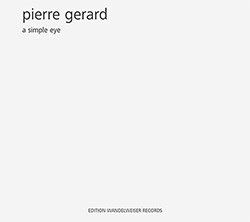




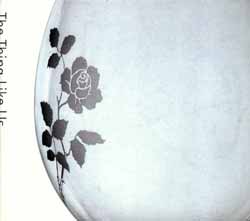
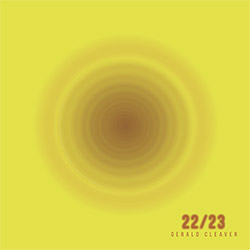
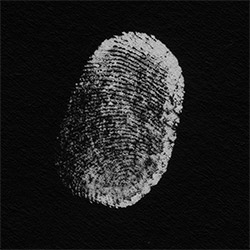

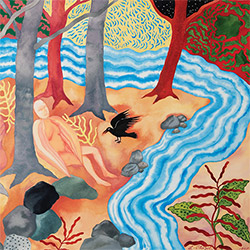
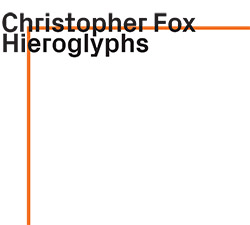







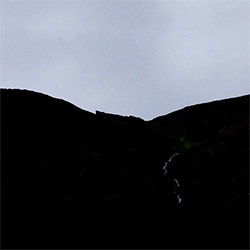

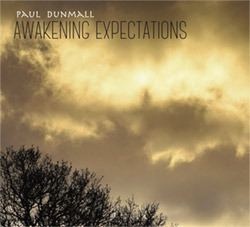
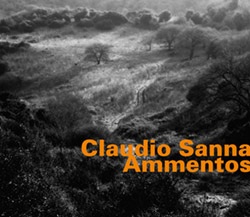
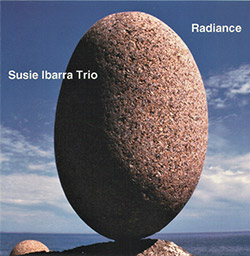
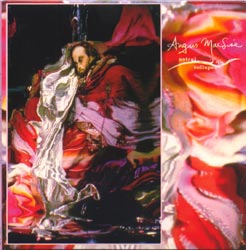










![Deupree, Jerome / Sylvie Courvoisier / Lester St. Louis / Joe Morris: Canyon [2 CDs]](https://www.teuthida.com/productImages/misc4/36404.jpg)


![Eternities: Rides Again [CASSETTE]](https://www.teuthida.com/productImages/misc4/36247.jpg)

![Lopez, Francisco: Untitled (2021-2022) [2 CDs]](https://www.teuthida.com/productImages/misc4/36438.jpg)




![Eventless Plot | Haarvol: The Subliminal Paths [CASSETTE + DOWNLOAD]](https://www.teuthida.com/productImages/misc4/36232.jpg)












![Eventless Plot | Francesco Covarino: Methexis [CASSETTE + DOWNLOAD]](https://www.teuthida.com/productImages/misc4/36231.jpg)



![Das B (Mazen Kerbaj / Mike Majkowski / Magda Mayas / Tony Buck): Love [VINYL]](https://www.teuthida.com/productImages/misc4/36329.jpg)



![Hemphill Stringtet, The: Plays the Music of Julius Hemphill [VINYL]](https://www.teuthida.com/productImages/misc4/36409.jpg)



![Halvorson, Mary Septet: Illusionary Sea [2 LPS]](https://www.teuthida.com/productImages/misc4/17952.jpg)






![Money : Money 2 [2 CDs]](https://www.teuthida.com/productImages/misc4/35894.jpg)




![Klinga, Erik: Elusive Shimmer [VINYL]](https://www.teuthida.com/productImages/misc4/36258.jpg)
![CHANGES TO blind (Phil Zampino): Volume 9 - I Wave on a Fine Vile Mist [CD + DOWNLOAD]](https://www.teuthida.com/productImages/misc4/36061.jpg)

![Wallmart / Rubbish: Asset Protection [split CD]](https://www.teuthida.com/productImages/misc4/35900.jpg)


![+Dog+: The Family Music Book Vol. 5 [2 CDs]](https://www.teuthida.com/productImages/misc4/35897.jpg)
![Kuvveti, Deli : Kuslar Soyledi [CASSETTE w/ DOWNLOAD]](https://www.teuthida.com/productImages/misc4/36107.jpg)

![Nakayama, Tetsuya: Edo Wan [CASSETTE w/ DOWNLOAD]](https://www.teuthida.com/productImages/misc4/36105.jpg)




![Yiyuan, Liang / Li Daiguo: Sonic Talismans [VINYL]](https://www.teuthida.com/productImages/misc4/35957.jpg)
![Brown, Dan / Dan Reynolds: Live At The Grange Hall [unauthorized][CASSETTE]](https://www.teuthida.com/productImages/misc4/36245.jpg)








![Palestine, Charlemagne / Seppe Gebruers: Beyondddddd The Notessssss [VINYL]](https://www.teuthida.com/productImages/misc4/36206.jpg)
![Palestine, Charlemagne / Seppe Gebruers: Beyondddddd The Notessssss [NEON GREEN VINYL]](https://www.teuthida.com/productImages/misc4/36207.jpg)

![Laubrock, Ingrid: Purposing The Air [2 CDs]](https://www.teuthida.com/productImages/misc4/35639.jpg)

![Yoko, Ono / The Great Learning Orchestra: Selected Recordings From Grapefruit [2 CDs]](https://www.teuthida.com/productImages/misc4/35841.jpg)









![Zorn, John / JACK Quartet: The Complete String Quartets [2 CDs]](https://www.teuthida.com/productImages/misc4/35609.jpg)

![Lonsdale, Eden: Dawnings [2 CDs]](https://www.teuthida.com/productImages/misc4/35480.jpg)



![Sorry For Laughing (G. Whitlow / M. Bates / Dave-Id / E. Ka-Spel): Rain Flowers [2 CDS]](https://www.teuthida.com/productImages/misc4/35985.jpg)

![Rolando, Tommaso / Andy Moor : Biscotti [CASSETTE w/ DOWNLOADS]](https://www.teuthida.com/productImages/misc4/36106.jpg)


![Electric Bird Noise / Derek Roddy: 8-10-22 [CD EP]](https://www.teuthida.com/productImages/misc4/35970.jpg)








![Elephant9 : Mythical River [VINYL]](https://www.teuthida.com/productImages/misc4/34624.jpg)



![Elephant9 with Terje Rypdal: Catching Fire [VINYL 2 LPs]](https://www.teuthida.com/productImages/misc4/35355.jpg)
![Deerlady (Obomsawin, Mali / Magdalena Abrego): Greatest Hits [VINYL]](https://www.teuthida.com/productImages/misc4/34876.jpg)







![Surplus 1980: Illusion of Consistency [CD]](https://www.teuthida.com/productImages/misc4/35069.jpg)
![Staiano, Moe: Away Towards the Light [VINYL + DOWNLOAD]](https://www.teuthida.com/productImages/misc4/35037.jpg)
![Coley, Byron: Dating Tips for Touring Bands [VINYL]](https://www.teuthida.com/productImages/misc4/17906.jpg)

![Lost Kisses: My Life is Sad & Funny [DVD]](https://www.teuthida.com/productImages/misc4/lostKissesDVD.jpg)